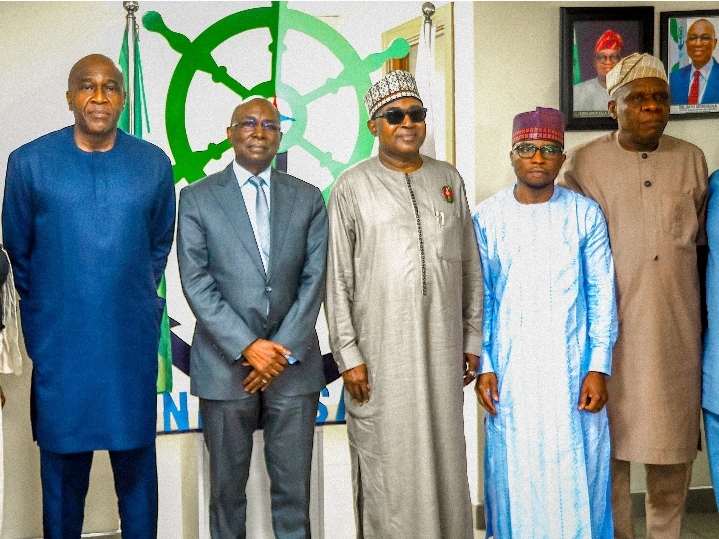
In an effort to curb the growing drug trafficking problem through Nigeria’s maritime routes, the Chairman of the National Drug Law Enforcement Agency (NDLEA), Brig. Gen. Mohammed Buba Marwa (rtd), has called for the agency’s inclusion in the Deep Blue Project.
Marwa made the call during a recent visit to the Nigerian Maritime Administration and Safety Agency (NIMASA), where he discussed ways the two agencies could work together to protect the country’s waters from the illegal drug trade.
The Deep Blue Project, a joint effort between the Ministry of Transportation and the Ministry of Defence, involves various security agencies including the Nigerian Navy, Police, and Army, and aims to ensure the safety and security of Nigeria’s maritime space.
During the visit, Marwa emphasized the urgency of a more collaborative approach, pointing to the alarming rise in drug shipments through Nigerian ports. “The global maritime space has increasingly become a conduit for the illegal movement of drugs,” Marwa said, adding that such criminal activities threaten both national security and public health.
He cited recent drug seizures at Lagos ports as a clear indication of the problem, calling for urgent and joint action to strengthen security measures.
Dr. Dayo Mobereola, the Director General of NIMASA, welcomed Marwa’s proposal for collaboration and reiterated NIMASA’s commitment to supporting the fight against drug trafficking. “We are committed to working closely with the NDLEA to address the issue of drug trafficking, especially through our ports and terminals,” Mobereola stated. He assured Marwa that NIMASA was ready to integrate NDLEA personnel into the security framework of the Deep Blue Project, which could significantly enhance maritime security.
The Deep Blue Project, which coordinates efforts from the Nigerian Navy, Air Force, Army, Police, and other security agencies, is already a major part of Nigeria’s approach to securing its maritime space. Marwa’s proposal to integrate NDLEA’s Marine Command into this initiative could make a significant difference in tackling drug trafficking through the country’s ports. By combining the resources and expertise of both NIMASA and NDLEA, the agencies hope to improve the surveillance and interception of illegal drugs moving through Nigerian waters.
In addition to strengthening security, Marwa also suggested that NIMASA could help in raising awareness about the dangers of drug trafficking. He proposed a training program for NIMASA staff and cadets under the National Seafarers Development Program (NSDP) to educate them on the threats posed by drug abuse and trafficking. This partnership would ensure that everyone involved in maritime operations is fully aware of the risks and prepared to act against the illegal drug trade.















